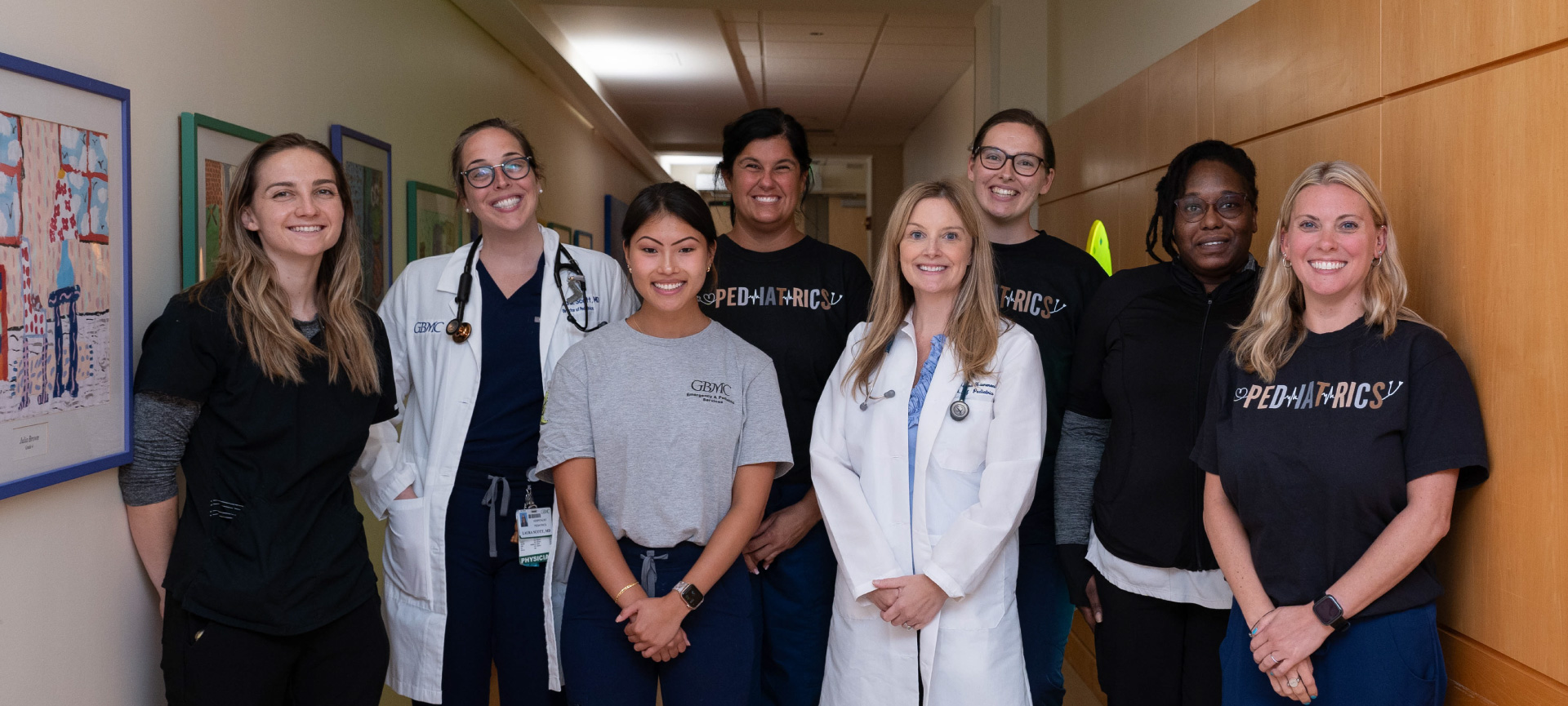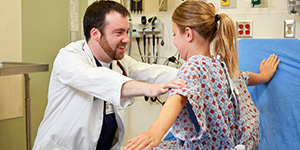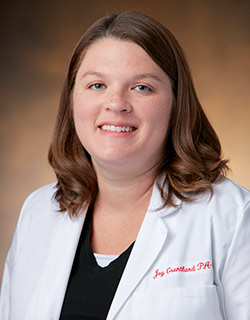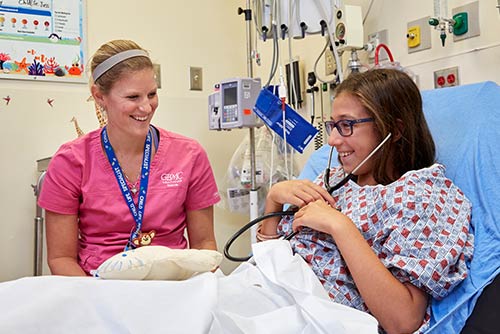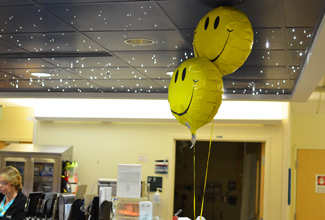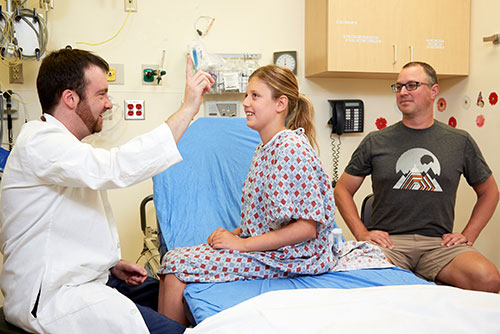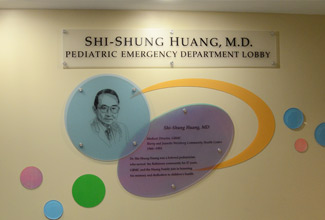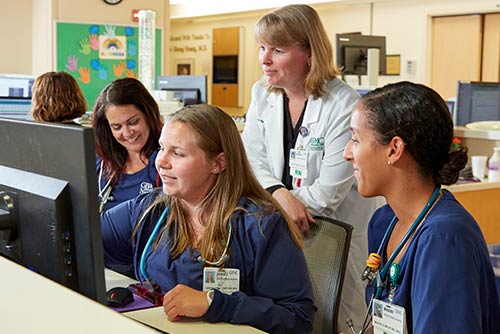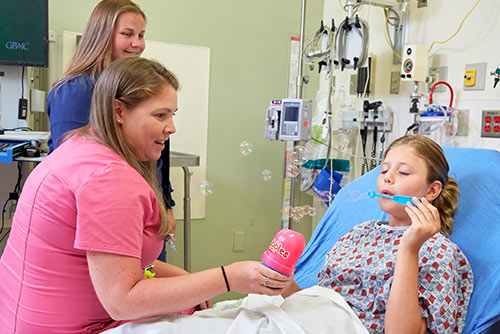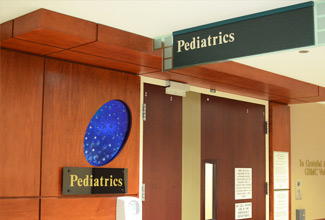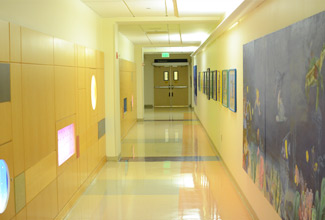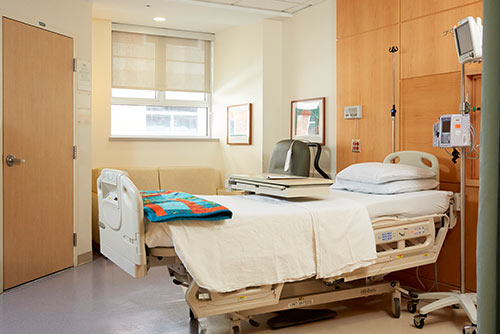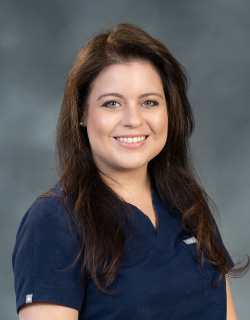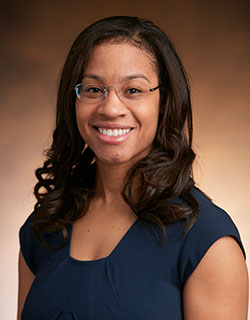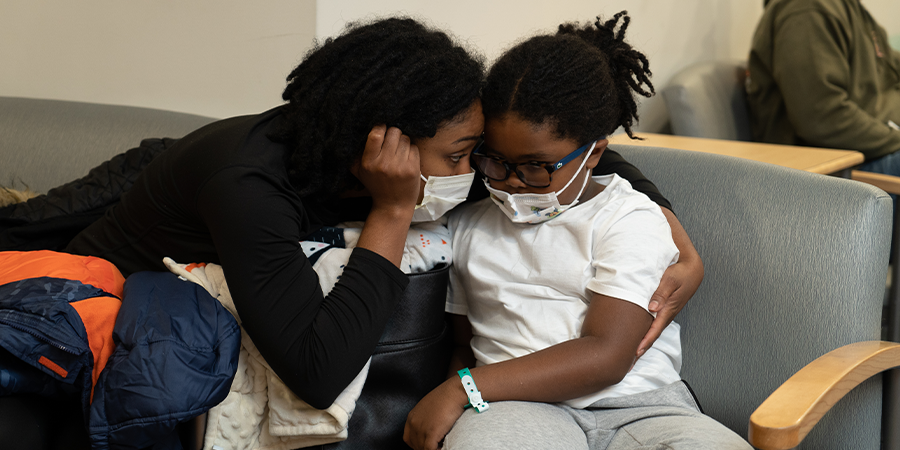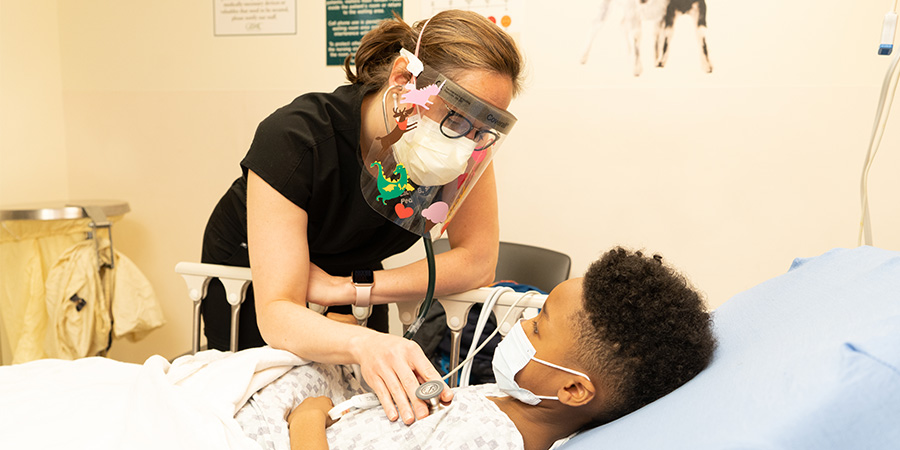Emergency & Inpatient Pediatrics at GBMC
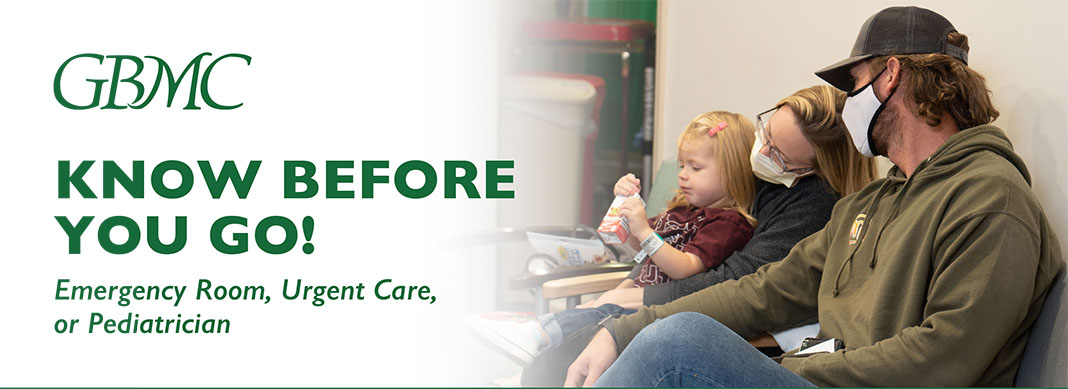
In most cases, it’s best to contact your child’s pediatrician or family medicine physician first with any health concerns. Most practices offer after-hours phone lines for parents to speak with an on-call nurse about their child's symptoms. Medical concerns that can usually wait until the next day are:
- Cough or sore throat
- Vomiting or diarrhea
- Runny nose
- Ear pain
- Eye drainage
- Fussy baby
- Fever of 100.4 F/38.0 C or greater before any medication is given
*height of fever doesn't indicate severity of illness
Health issues don’t always happen during business hours, especially with children. If your child has an illness or injury that is not life threatening, but can’t wait until the next day, an urgent care facility is the place to go.
Common non-life-threatening illnesses/injuries are:
- Small cuts or minor burns
- Fractures or broken bones that aren’t causing severe pain
- Sprains
- Sinus infections
- Pink eye
Pediatric and adult Emergency Departments are intended to care for those who have serious, life-threatening illnesses or injuries that require immediate medical attention.
Take your child to the Emergency Department in these cases:
- Trouble breathing/shortness of breath
- Head, spinal cord, or eye injury
- Seizure
- Severe bleeding or burns
- Chest or stomach pain/pressure
- Allergic reaction (swelling of face, lips, tongue, eyes; fainting; trouble breathing; hives)
- Lips, skin, or fingernails that have turned blue or purple
- Fever (100.4 F/38.0 C or greater, taken rectally before any medication is given) in an infant younger than two months old
- Uncontrolled pain
- Animal or human bite
A model of care that merges emergency, observation, and in-patient care into one integrated setting
On Your Way?
Pre-register before you get here to alert our staff and save time!
Pre-register now
Opened in 2004, the Pediatric Combined Care Unit sees approximately 10,000 children a year in the ED setting and approximately 1,200 children are admitted to in-patient/observation. We are open 24/7 and provide high quality care to patients from birth to age 18. Our caregivers include 9 Board-Certified pediatricians and 20 pediatric nurses certified both in Pediatric Advanced Life Saving (PALS) and Emergency Pediatric Nurse Core Curriculum (ENPC). The average length of stay time in the Peds ED for serious conditions (those patients who require significant work-ups, admission, or transfer) is 180 minutes, and for less serious conditions, 120 minutes, below national averages for similar institutions.
Available in-house for our pediatric patients are Otolaryngology, Ophthalmology, and Pediatric Surgery. Our Pediatric Surgeons are known to be among the best in the state. For new breast-feeding mothers with sick infants, our nurses along with lactation experts provided breast-feeding support throughout the infant's hospital stay. For babies who are readmitted after discharge from the nursery or NICU, our neonatologists will provide their ongoing expertise if needed. Available by phone consultation for our pediatric patients are Pediatric Neurology, Gastroenterology, Cardiology, Neurosurgery, Pulmonary, Rheumatology, Allergy and Immunology, and Infectious Diseases. We have a standing affiliation with Johns Hopkins Pediatric Cardiology and are able to obtain rapid readings of Echocardiograms. We also have a psychiatrist or psychologist available on a daily basis to see Pediatric patients in psychiatric crisis. For those patients in need of a higher level of care in a tertiary hospital, our physician-nurse teams are experts in rapidly stabilizing and transporting patients.
Our Services
Services and features of the Pediatric Emergency Department and Inpatient Unit include:
- A "Quick Look" evaluation by a nurse as soon as you walk through the door
- Waiting area specially designed for children
- A Pediatric Observation Unit where your child's health status can be regularly monitored
- In-room registration and separate triage for children
- Rooms for children that need to be admitted overnight with couches for parents to sleep over
- Board certified round-the-clock physicians and nurses
- Urgent Care Center for minor trauma, splintering and laceration repair
- Fast turn around for laboratory services
- Mental health evaluation and care
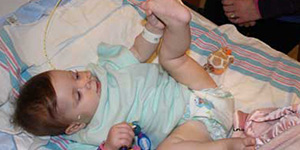
Saving Our Baby's Life
“I believe your daughter has Infant Botulism. There is a treatment, but it is only made in California. She may get worse before she gets better. She may lose her breathing.” These words that were spoken to us only a short time after our five-month-old baby, Madison, entered the Emergency Room....
Program Philosophy and Vision
One of the biggest strengths of our Pediatric Unit is our philosophy of Image Gently, where considerable thought is given to appropriate use of any imaging procedures that involve ionizing radiation. For example, our first line of evaluation for appendicitis is ultrasound, and we are able to diagnose this condition via this modality in more than 50% of cases. By following the recommendations of PECARN, Pediatric Emergency Care Associated Research Network, we have been able to reduce the percentage of pediatric patients who undergo Head CT for evaluation of minor closed head trauma from 50% to 12% without missing any diagnosis of intracranial bleeding.
Another strength of our Pediatric Combined Care Unit is our focus on the alleviation of pain, the acute pain derived from trauma and illness as well as the pain that can be associated with procedures conducted as part of emergency evaluation and treatment. Our repertoire of medications for management of pain include intra-nasal medications that can be rapidly administered and feel like a nose spray to the child, oral medications in liquid and tablet form, and a variety of IV medications that can be used in combination as needed. Topical numbing agents are useful for patients requiring stitches, abscess incision and drainage, among other indications. For more invasive procedures or those that require immobility our pediatricians are credentialed to provide both moderate and deep sedation.
If your child is acutely ill, or has any medical needs beyond what can be provided in the home or a Pediatrician's office, GBMC Pediatrics would be honored to provide your child and your family with our outstanding care.
Photo Gallery
Related Services

Domestic Violence at GBMC
6701 N. Charles St. Main Hospital, Emergency Department - Towson, MD 21204

SAFE Program at GBMC - Sexual Assault Forensic Examination
6701 N. Charles St. Main Hospital, Emergency Department - Towson, MD 21204
